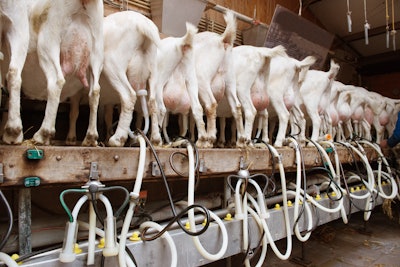
While no dairy goat operations have tested positive for the H5N1 influenza virus, that doesn’t mean that the risk is not there, said Indiana State Veterinarian Bret Marsh.
Marsh and the Indiana State Board of Animal Health (BOAH) on April 26 held a conference call with representatives from all agrifood sectors to offer updates on the current H5N1 situation, which now in addition to having stuck commercial poultry flocks across North America as a highly pathogenic avian influenza (HPAI) has now made it into numerous commercial dairy operations. However, no Indiana dairies have yet to have any confirmed H5N1 cases.
One participant in the call inquired if dairy goat operations should be concerned about H5N1, to which Marsh said they should.
Marsh referred to an earlier statement made by another caller, George Fox, from the United States Department of Agriculture (USDA) Animal and Plant Health Inspection Service (APHIS). Fox said preliminary studies have shown that HPAI has “a strong ability to multiply within the mammary tissue, but not within other tissues.” Marsh indicated that it could apply to the mammary tissues other species of mammals.
“Based on what we’re learning, this virus seems to have a predilection for the mammary tissue and so that’s why we’ve had conversations with the swine industry, certainly the dairy industry, the beef industry and therefore the sheep and goat industries,” said Marsh.
“If any of these commodities are seeing … things that are unusual in those populations, please get with your veterinarian to get some diagnostics done. There’s potential for that in dairy goat operations as well, and we need to be aware of that.”
Marsh did point out that a new federal order will require dairy cattle to receive a negative test for Influenza A virus prior to interstate movement, but that order does not apply to goats.
“Nonetheless, being on high alert, I think is appropriate,” he said.
While no commercial goat dairies have had confirmed cases of H5N1, it did appear in some backyard goats in Stevens County, Minnesota, in March. That same farm had earlier had some backyard poultry affected by H5N1.













